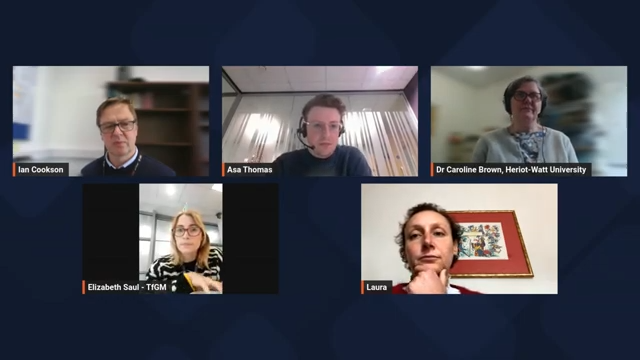Seminar #25 The kids are alright – how to stop the school run by car

Summary
School travel has the potential to be a healthy and social activity for children and there is an opportunity to boost take up of active travel by pupils. Around half of children walk or cycle to school (54% in primary and 47% in high schools in 2022, according to the National Travel Survey). The school run remains a stubborn source of traffic congestion, with 40% of primary school children and 26% of high school children being driven to school.
There is a set of complex issues and challenges that shape decision-making around travel to school. Issues around road safety, weather and time are cited as barriers to active travel. A need to trip chain, whereby carers take dependents to school before continuing their onward journey, is another common reason for driving kids to school.
Presentations
We invited an expert panel to present their work around school travel, bringing together their experiences geographically from Edinburgh, London, Greater Manchester, and Oxford. Their experiences also drew on their roles in Academia, the public sector, and boots on the ground experience of delivering interventions. Following the presentations, our panel took part in a busy Q&A with questions from our online audience. Below you’ll find a video of each presentation, and the Q&A. Slides from the presenters are included below the video.
Dr Caroline Brown – Assistant professor in the School of Energy, Geoscience, Infrastructure and Society, The Urban Institute (Herriot-Watt University)
Carolines research looked at policy documents in Scotland that related to school travel, and showed how the documents reflect a policy area that is still developing.
Laura Di Giacomo
Laura discussed her role as Active Travel Champion for St. Ebbes primary school in Oxford, and the range of measures she undertook, working with the school and parents, in order to implement a school street.
Liz Saul
Liz provided us with a GM context, looking at the opportunities and demands for school travel, and what TfGM is doing across the region to increase active travel to schools.
Asa Thomas
Asa’s research in London considers the large numbers of school streets now in place in the capital, and the possible mechanisms behind modal change when school streets are implemented.
Q&A session
Chaired by Ian Cookson (University of Salford) our online audience put questions to our panel. These included questions around how to further develop policy and practice around school travel, and whether volunteers or the use ANPR is the way forward in enforcing school streets.